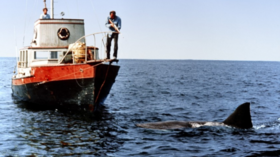Iconic cinematographer dies aged 101


Academy Award-nominated cinematographer Bill Butler died on Wednesday, two days before his 102nd birthday, the American Society of Cinematographers has announced. He was considered one of the foremost influences in a golden age of American cinema.
“I hear you’re making a movie about a fish,” he once recalled saying to a young Steven Spielberg about a film that eventually became ‘Jaws’. Butler was the cinematographer for the movie, which proved an exercise in a film crew’s battle against an unwilling mechanical shark, the elements, and the limits of their own imaginations.
The Spielberg production was one of the most infamously arduous filmmaking ventures in the history of the silver screen, but would go on to smash US box office records and define a new genre of filmmaking: the summer blockbuster.
“On ‘Jaws’, Bill Butler was the bedrock on that rickety, rocking boat called the Orca,” Spielberg told Variety following Butler’s death. “He was the only calm in the middle of that storm, and as we went into a battle against nature and technology that wore both of us down, the audience eventually won the war.
“I owe him so much for his steadfast and creative contributions,” Spielberg added.
Indiana native Butler seemed to have the midas touch when it came to some of the most revered pictures of the 1970s. He collaborated with John Boorman on his classic ‘Deliverance’ in 1972, following that with two turns alongside Francis Ford Coppola in ‘The Conversation’ and ‘The Godfather’.
Butler’s depiction of an emotionless, unstoppable villain in ‘Jaws’ was swiftly followed in 1975 by that of another legendary antagonist, Nurse Ratched in the Jack Nicholson film ‘One Flew Over the Cuckoo’s Nest’. Those efforts would see him claim his only Oscar nomination for Best Cinematography.
As Butler’s reputation increased, so too did the breadth of his work. He shot several of the ‘Rocky’ sequels (though not the original), as well as ‘Grease’ and the Bill Murray comedy ‘Stripes’, before his output diminished gradually in the 1990s.
Butler’s final act was the unheralded 2009 horror movie ‘Evil Angel’. He is survived by his wife Iris and five daughters.